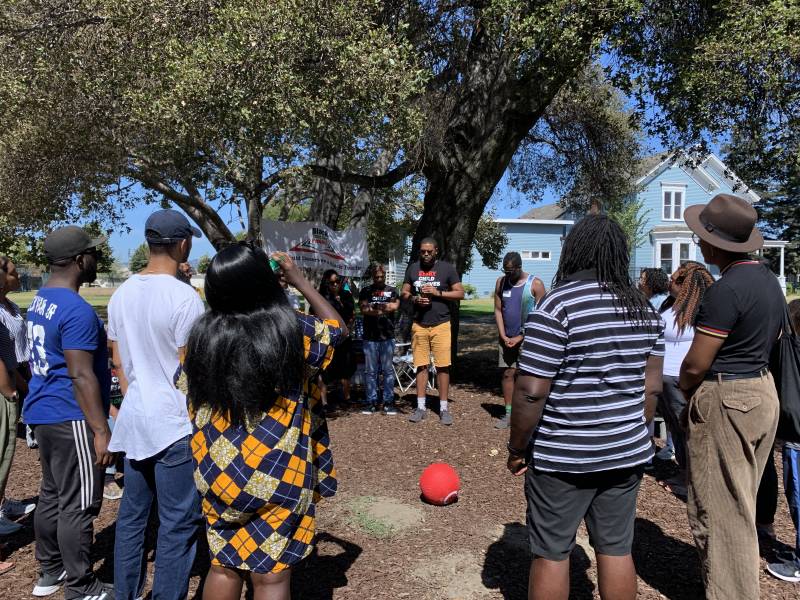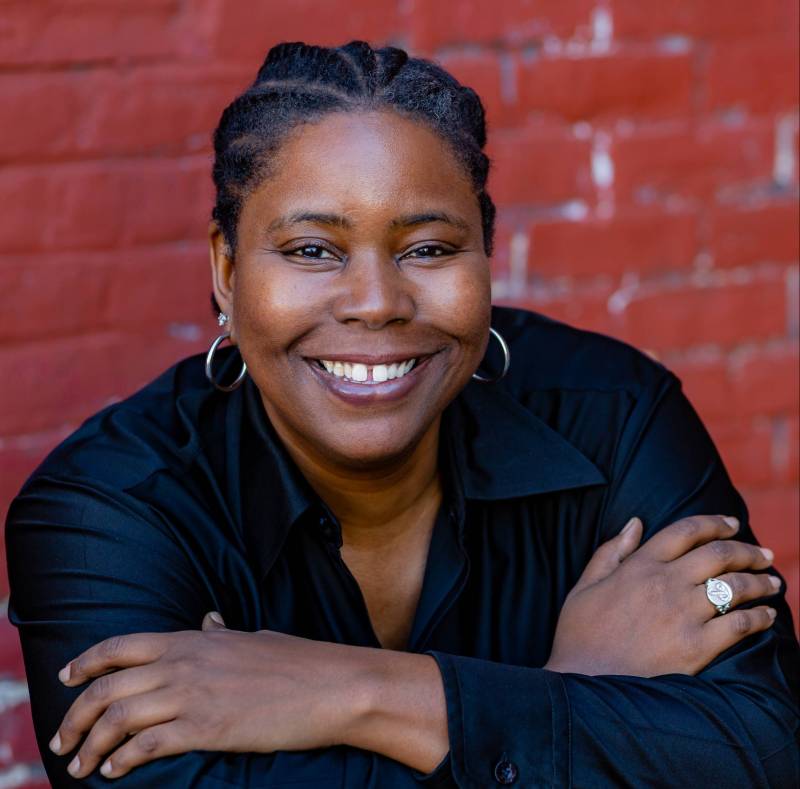While the reasons for hiring Black teachers may seem obvious to many, there is such a thing as hiring Black teachers for the wrong reason. “People won’t admit it, but underneath the desire it’s really about the management of Black bodies,” said Mosely. “When a Black child gets in trouble, it is often a Black adult who is called upon to address the situation.” Schools often push teachers into roles where their job is to manage behavior. Mosely notes that Black educators are likely to be deans or be directed to participate on culture and climate committees rather than on instructional leadership teams.
Seeing Black educators as disciplinarians also results in Black teachers getting less support and recognition for their effectiveness when they have a well-behaved classroom. “Schools don’t often pore into Black teachers in the way that they may other teachers because of the optics of discipline. It seems like everything’s calm, as though a successful classroom is simply students not misbehaving,” she said. Because of their success, these teachers are usually saddled with attending to students with behavioral issues and are left with little time to advance their teaching practices.
Good behavior in Black teachers’ classrooms is often indicative of their strong relationships with students, not their skill as disciplinarians. “Researchers talk about this concept of warm demanders, who are the folks who can tap into the emotional needs of a young person and still have demands of them academically,” said Mosely. “That phrase ‘warm demander’ is most often associated with Black teachers.” School leaders who intend to hire Black teachers must be prepared to both support them with professional development and the structures that will allow their effective teaching practices to flourish.
Mosely uses work by john a. powell, Director of the Othering & Belonging Institute at UC Berkeley to explain why schools need to move Black teacher recruitment and retention efforts beyond inclusion to authentic belonging. “Inclusion means you can get included in what we’re doing,” said Mosely. “Belonging says when I go into that environment, it changes.” This may look like shifting prioritization away from test scores towards relationships, or a willingness to have structures and processes shift in order to accommodate Black teachers’ expertise. “It doesn’t mean that you don’t value assessment, but you’re also going to need to create space to value people,” she said.
Healing as professional development
As evidenced by disproportionate discipline rates and curriculum that usually privileges white perspectives, Black students have had to figure out how to navigate a school system that was not created for them to succeed. That was the case when Mosely, as a young student, was bussed from her neighborhood to a mostly white school. “It was painful to go to a predominantly white institution where folks automatically assume that I wasn’t smart enough,” she said. Like Mosely, many Black teachers who remember learning in an unwelcoming and racist school system use their experiences to be better teachers. “Black teachers are focused on the well-being of the whole child and healing from all forms of oppression, which is something that successful Black teachers have had to figure out how to do.”
Though many Black teachers have been able to turn their difficult learning experiences into strong teaching practices, they need to do their own healing in order to become effective educators. “For many Black teachers, you’re dealing with the residual pain of however you navigated the system,” said Mosely. While healing may not seem like it falls under professional development, BTP spends a lot of time helping Black educators unpack experiences of internalized oppression or feelings of inadequacy they might have picked up in the educational system. To Mosely and others at BTP, self and community care as a professional practice enables Black teachers to not burnout and continue to show up better for students. The healing work keeps them from perpetuating a harmful and oftentimes racist system.

Black teachers are the focus of BTP, but Mosely makes it clear that all teachers are in need of healing, whether it’s because becoming a teacher went against your parents expectations or needing to understand the weight and responsibilities of being a teacher with certain identities. “When we think about everyone focusing on healing as part of professional practice, it allows us to move forward with a clearer understanding of who we are and what’s ours to do,” said Mosely, noting that the pandemic and its effect on schools has made the need for healing even greater.
One of the ways this healing can take place is through participation in affinity groups, or groupings of people with a shared identity. Mosely said that being in affinity groups like Black Teacher Project enables its participants to step outside systemic expectations and allow different practices to emerge. With a sense of purpose, together, they explore their shared experiences, histories and healing practices.
Though BTP focuses their support on Black teachers, Mosely said that all groupings benefit from affinity groups as long as they have a clear learning and healing agenda. For instance, a white affinity group may learn about the history of white antiracists, how they have come to be called white, and how to heal from the ways they too have been harmed by oppression. “We always talk about oppression as though it only harmed people of color, but white folks have been stripped of their humanity as well,” Mosely said.


